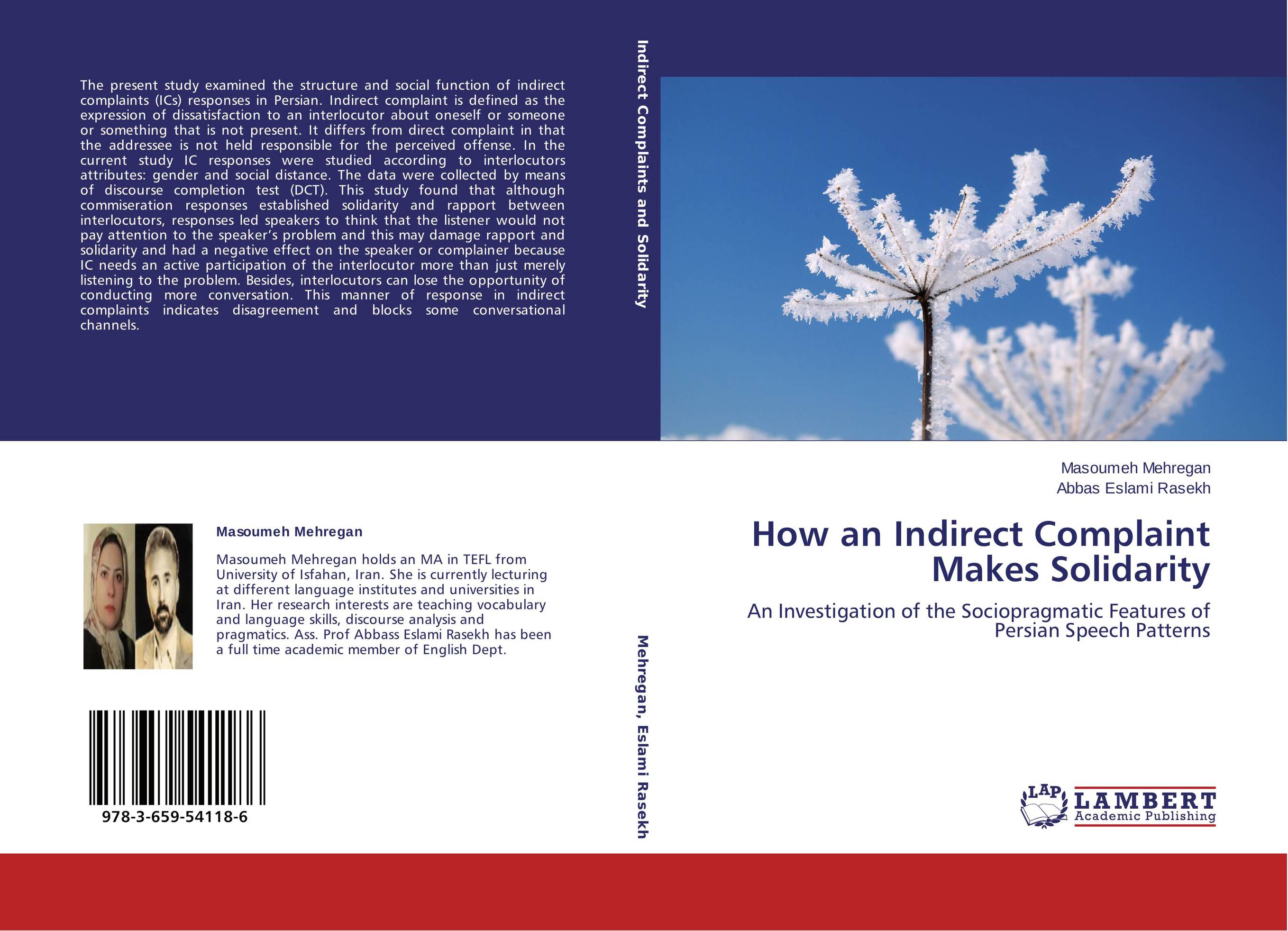| Поиск по каталогу |
|
(строгое соответствие)
|
- Профессиональная
- Научно-популярная
- Художественная
- Публицистика
- Детская
- Искусство
- Хобби, семья, дом
- Спорт
- Путеводители
- Блокноты, тетради, открытки
How an Indirect Complaint Makes Solidarity. An Investigation of the Sociopragmatic Features of Persian Speech Patterns

В наличии
| Местонахождение: Алматы | Состояние экземпляра: новый |

Бумажная
версия
версия
Автор: Masoumeh Mehregan and Abbas Eslami Rasekh
ISBN: 9783659541186
Год издания: 2014
Формат книги: 60×90/16 (145×215 мм)
Количество страниц: 136
Издательство: LAP LAMBERT Academic Publishing
Цена: 36556 тг
Положить в корзину
Позиции в рубрикаторе
Отрасли знаний:Код товара: 134407
| Способы доставки в город Алматы * комплектация (срок до отгрузки) не более 2 рабочих дней |
| Самовывоз из города Алматы (пункты самовывоза партнёра CDEK) |
| Курьерская доставка CDEK из города Москва |
| Доставка Почтой России из города Москва |
Аннотация: The present study examined the structure and social function of indirect complaints (ICs) responses in Persian. Indirect complaint is defined as the expression of dissatisfaction to an interlocutor about oneself or someone or something that is not present. It differs from direct complaint in that the addressee is not held responsible for the perceived offense. In the current study IC responses were studied according to interlocutors attributes: gender and social distance. The data were collected by means of discourse completion test (DCT). This study found that although commiseration responses established solidarity and rapport between interlocutors, responses led speakers to think that the listener would not pay attention to the speaker’s problem and this may damage rapport and solidarity and had a negative effect on the speaker or complainer because IC needs an active participation of the interlocutor more than just merely listening to the problem. Besides, interlocutors can lose the opportunity of conducting more conversation. This manner of response in indirect complaints indicates disagreement and blocks some conversational channels.
Ключевые слова: politeness, Complaint, IC/ Indirect Complaint, ISA/ Indirect Speech Act, Cultural Stereotype



